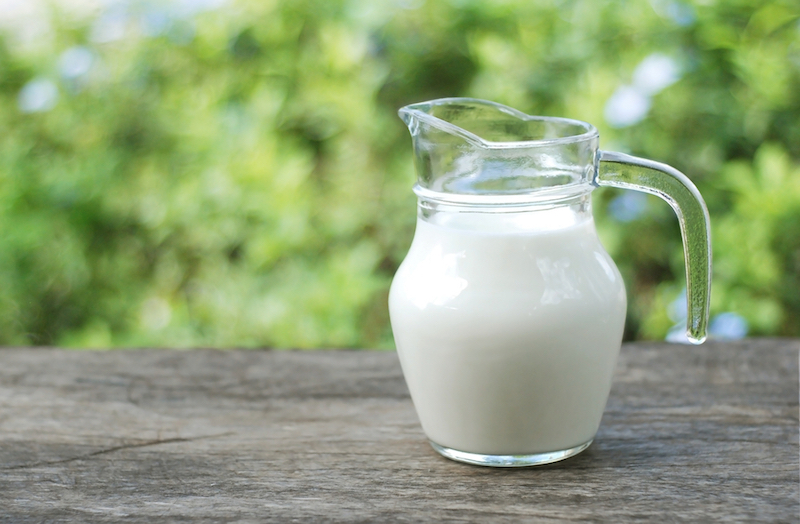Pesticide in Milk Decades Ago May Be Linked to Parkinson's Disease

A pesticide that was present in milk in the early 1980s may be linked to signs of Parkinson's disease that are showing up in people today, according to a new study.
The researchers looked at Japanese-American men in Hawaii, where the pesticide was frequently used, and found that those who drank more than two cups of milk daily at the start of the study had 40 percent fewer brain cells in an area of the brain called the substantia nigra 30 years later, on average, compared with similar men who drank less than two cups of milk per day.
The loss of brain cells in this area of the brain may be an early sign of Parkinson's disease, and can start decades before any visible symptoms of the disease occur, the researchers said. The study included men whose average age was 54 at the start of the study.
The link between the higher consumption of milk and the loss of cells in this brain area was not found among the men in the study who had ever smoked cigarettes, the researchers noted. Previous research has shown that people who smoke cigarettes may have a lower risk of developing Parkinson's disease, the researchers said. [10 Things You Didn't Know About the Brain]
The researchers also found that residues of the pesticide, called heptachlor epoxide, were present in the brains of 90 percent of the men who drank the most milk, compared with 63 percent of those who did not drink any milk.
High levels of the pesticide were found in the milk supply in the early 1980s in Hawaii, where the chemical was used for insect control in the pineapple industry. The commercial sale of the pesticide in agriculture was banned in the United States by 1988, according to the U.S. Environmental Protection Agency. However, a related compound can still be used today for controlling fire ants in electrical grid machinery, according to the Agency for Toxic Substances & Disease Registry.
The researchers noted that they do not have direct evidence that the milk the men drank contained the pesticide. However, they "just have no other explanation for how heptachlor epoxide found its way into the brains of men who consumed milk," said study author Robert D. Abbott, of the Shiga University of Medical Science in Otsu, Japan.
Sign up for the Live Science daily newsletter now
Get the world’s most fascinating discoveries delivered straight to your inbox.
In the study, researchers followed about 450 Japanese-American men for more than 30 years until they died, and then performed autopsies on them. They looked at the cells in the substantia nigra, and also measured the amount of the pesticide residue in 116 of the men's brains, according to the study, published today (Dec. 9) in the journal Neurology.
The findings suggest that diet may play a role in the development of Parkinson's disease, the researchers said. However, the new results do not show a cause-and-effect relationship between the pesticide or milk and Parkinson's disease. Rather, they show there is an association between these factors, they said.
"The vast majority of milk consumers do not get Parkinson's disease," Abbott told Live Science.
But Abbott recommended that people should generally be vigilant about eating food that may contain pesticides.
Dr. Honglei Chen, of the National Institute of Environmental Health Sciences, who was not involved in the study, said that the association found in the study could potentially be explained by mechanisms other than this pesticide actually causing the brain changes.
Chen, who wrote an editorial on the findings that is also published today in the journal, noted that the men's milk consumption was measured only once at the start of the study. The study assumes that "this measurement represented participants’ dietary habits over time," but this may not have been the case, he said in a statement.
Follow Agata Blaszczak-Boxe on Twitter. Follow Live Science @livescience, Facebook & Google+. Originally published on Live Science.









